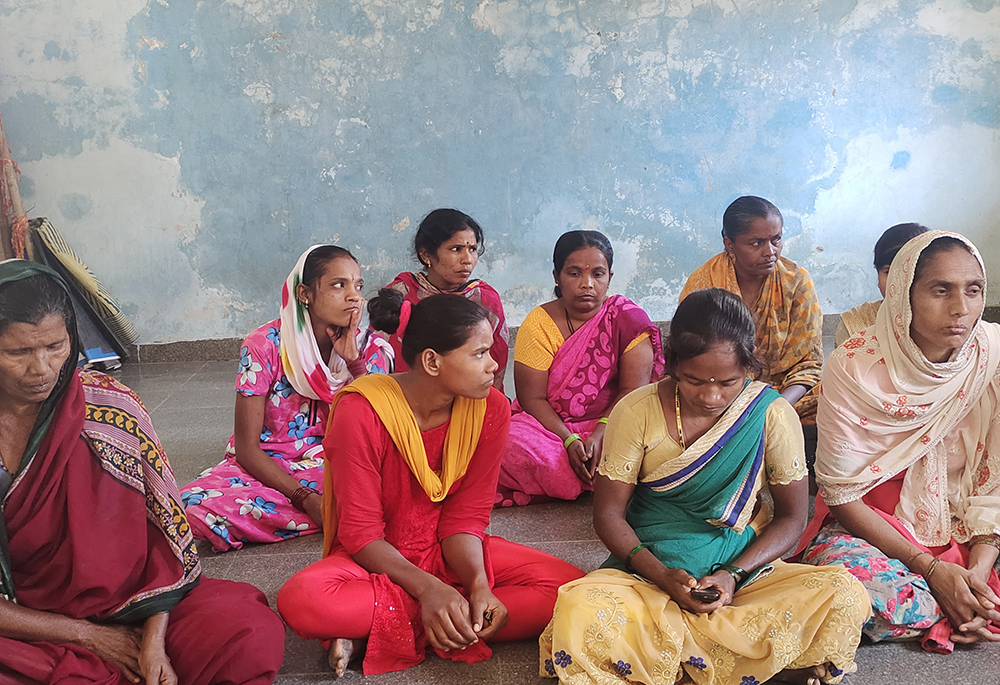
A group of women who have lived as devadasis are part of a church-initiated self-help group that Sr. Amala Rani, a member of the Sisters of St. Joseph of Tarbes, coordinates in Bijapur. (Thomas Scaria)
Gadyamma, who has been living as a devadasi since childhood, does not want her daughter to follow the oppressive tradition of being a female dancer in Hindu temples.
"I became a devadasi when I was 12 under our village tradition, but I want my daughter to study and lead a dignified life," Gadyamma (who asked not to use her last name) told Global Sisters Report, while tightly holding her 14-year-old daughter, Dadyamma.
Devadasis are part of a religiously sanctioned ancient system in southern India, where girls are offered as "slaves of god or goddess" — the literal translation of devadasis — just before they reach puberty. As a devadasi, they serve the temple in religious rituals, music, dance, and religious service.
Over the years, this custom became a forced dedication to a life of prostitution and dance, especially to entertain the temple priests and the high caste elites. While temple services are unpaid, girls depend on paid sex work for their living. The state banned the tradition under the Karnataka Devadasis (Prohibition of Dedication) Act in 1982, though today it continues as a clandestine practice outside temples. (The devadasi system also once prevailed in Andhra Pradesh, Tamil Nadu, and Maharashtra, where it's now abolished.)
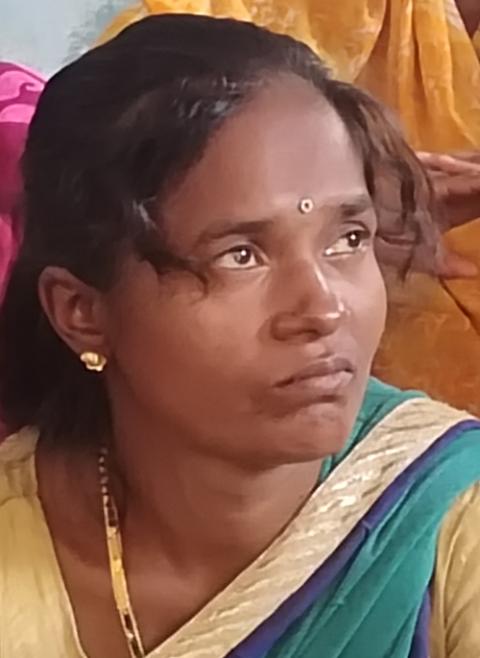
Gadyamma, a devadasi (temple dancer) who has benefitted from a Catholic initiative to eradicate the age-old enslaving tradition in southern India (Thomas Scaria)
Gadyamma and several other women from Karnataka's devadasi community are slowly getting out of the age-old tradition, thanks to Catholic nuns from six congregations who collaborate with the Jesuits.
"Empowerment through education is the motto of our work among devadasis," said St. Joseph of Tarbes Sr. Amala Rani, coordinator of the Devadasi Rehabilitation Program at Navachethana (New Inspiration), a Jesuit center for nonformal education in Bijapur.
She said several devadasis are members of the self-help groups that the Jesuit mission promote.
According to some nongovernmental organization estimates, around 80,000 devadasis now live in the state of Karnataka, although the last official government survey on them was in 2008, which put the number at about 40,000.
Despite a 40-year-old ban on the practice, hundreds of such girls — mostly from India's lowest caste, the Dalit communities (formerly known as "untouchables") — are dedicated to the goddess Yellamma at Saudatti temple, some 80 miles south of Bijapur.
While the young girls spend time in the temple as dancers and religiously sanctioned sex workers, the older ones go to brothels in cities like Mumbai, India's commercial capital.
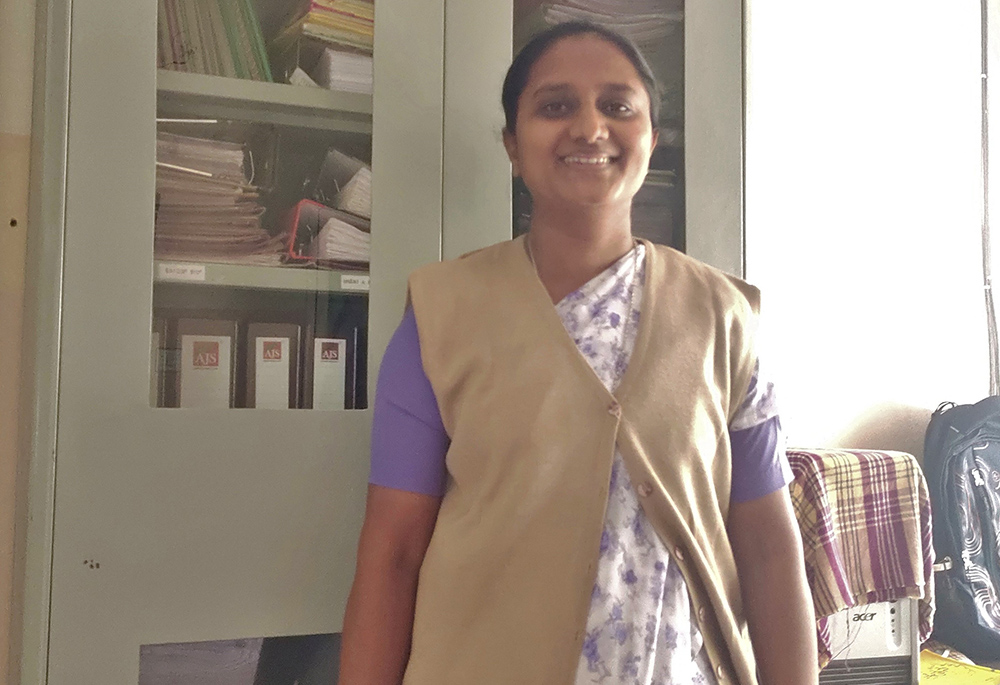
St. Joseph of Tarbes Sr. Amala Rani, coordinator of the Devadasi Rehabilitation Program at Navachethana Centre for Non-Formal Education in Bijapur (Thomas Scaria)
"They return with some health problems, mostly sexually transmitted diseases like HIV/AIDS," Rani, who works in Navachethana, told GSR.
The Catholic nuns are engaged in educating the children of devadasis, the rehabilitation of HIV-infected women and children, and the socioeconomic empowerment of these women.
Sisters of St. Joseph of Tarbes and St. Joseph of Cluny are involved in treatment and rehabilitation of AIDS patients, most of whom are devadasis and their children. Meanwhile, the Ursuline Franciscan Sisters manage a school in Bijapur that caters to the children of devadasis as well as other students. The Daughters of the Heart of Mary teach in Jesuits' Loyola School in Bijapur to educate the slum dwellers; the Maids of the Poor, a secular institute, manage the residence attached to the school; and the Sisters of Charity of Sts. Bartolomea Capitanio and Vincenza Gerosa operate a rural center southeast of Bijapur to educate and empower women through self-help groups. All involve direct work with devadasis.
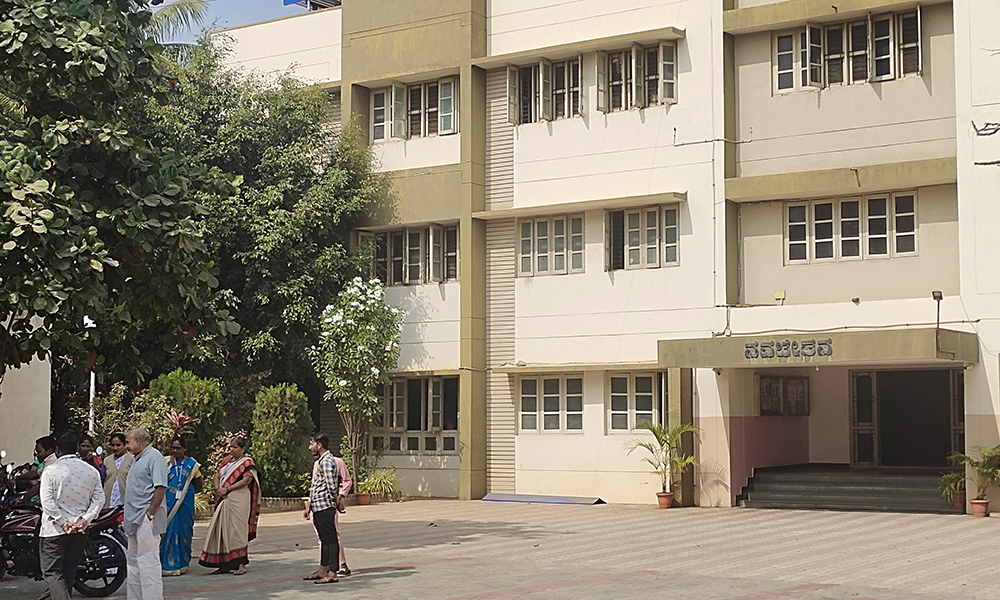
The Jesuits' Navachethana Centre for Non-Formal Education, that coordinates 10 women religious congregations in their Bijapur Mission in Karnataka state in southwestern India (Thomas Scaria)
The nuns came to the Jesuits' Bijapur mission almost two decades ago as part of a unique model of partnership for the overall development of people, especially the devadasis, said Navachethana director Fr. Teyol Machado.
The Jesuit priest told GSR that they started working among devadasis in 1996 when they noted an increase in the number of HIV/AIDS patients among the temple dancers.
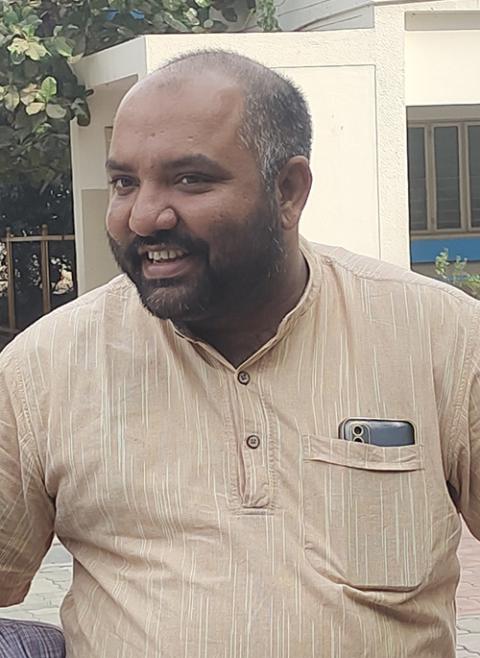
Jesuit Fr. Teyol Machado, director of Navachethana Centre for Non-Formal Education (Thomas Scaria)
He said their mission among the devadasis was to set up a hospital for HIV/AIDS patients. Their first AIDS treatment unit was set up on the second story of the rectory of St. Ann's Parish, braving objections from the parishioners.
Machado said the first opposition to their work among the devadasis came from Catholics when they started treating the HIV-infected devadasis on the parish premises.
"But gradually they accepted our mission and cooperated with us," he added.
Later they shifted the program to a newly built center with better facilities to cater to the treatment of HIV/AIDS patients.
"Now, we have a 30-bed nursing home to take care of the AIDS patients," said Sr. Shanthi Mary, superior of the Tarbes community, adding that they also manage a home for the HIV-infected sons of devadasis. (The Cluny sisters manage a home for HIV-infected girls, four miles away.)
Mary said the nuns from the six congregations take turns to manage a community program that attends to the HIV/AIDS patients, including devadasis, in villages. They visit the patients every month to provide medicines and nutrition, in addition to supporting them psychologically; however, they had to discontinue the program because of the pandemic and lockdowns. Lack of treatment led to the deaths of several patients in the past two years, Mary bemoaned.
Advertisement
Cluny Sr. Arul Jyothi, who manages the residential facility for HIV-infected girls at the school, said the nuns have realized that they can fight the devadasi system only through education.
One girl the Cluny sisters helped is Malini (name changed), who now teaches in the same Catholic school where she studied.
"I am what I am because of the Cluny sisters, who instilled in me a lot of confidence and positive energy," said the young woman, who received a scholarship from the deputy commissioner of Bijapur for the teacher training course.
Ursuline Franciscan Sr. Veena Goretti Fernandes, who manages a school and its boarding house in Bijapur city, said the devadasis now realize the importance of education and self-dignity after their children started attending the church schools.
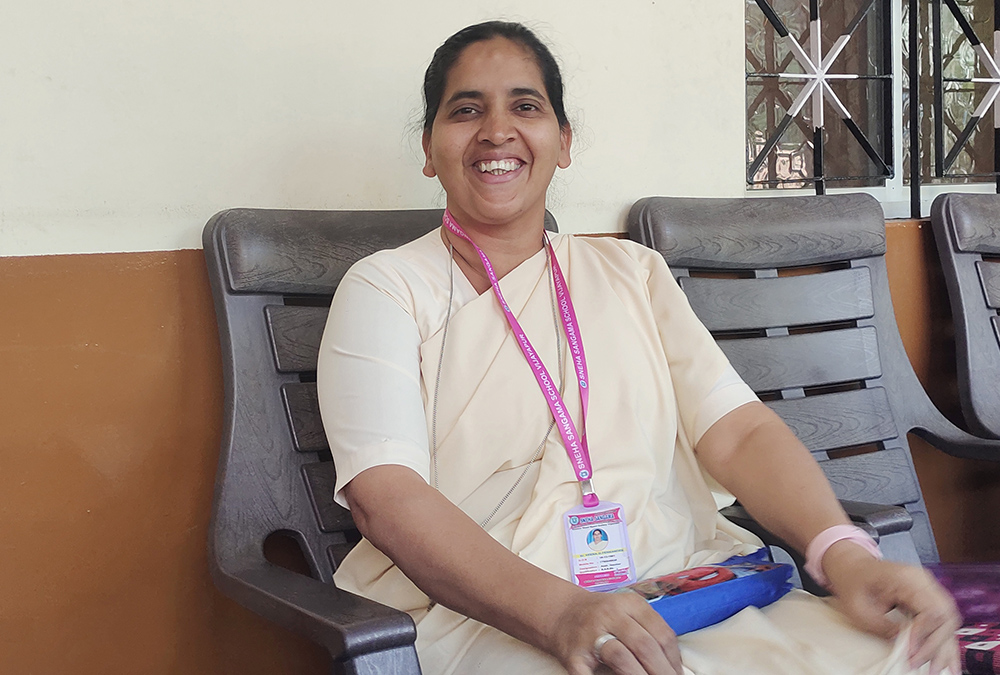
Ursuline Franciscan Sr. Veena Goretti Fernandes, the headmistress of the Ursulines Convent School in Bijapur, where several children of devadasis study (Thomas Scaria)
"Education acts as a powerful tool for transformation," Fernandes told GSR. "Several children have gone for higher studies and got jobs."
Sr. Beena Yallurkar, of the Sisters of Charity of Sts. Bartolomea Capitanio and Vincenza Gerosa, said the devadasi system is deeply rooted in the people's minds and it was a "real challenge to change their attitude."
Yallurkar, who began working among the devadasis in villages 18 years ago, said poverty is the key factor causing people to embrace the system, in addition to ignorance, illiteracy and superstitions, with some level of religious manipulation.
Most parents believe their responsibility ends once their daughter is declared a devadasi, the nun in her 60s told GSR at her convent in Talikoti.
She said most girls are initiated to the devadasi system through a religious ceremony at the Saudatti temple during its annual festival. Having witnessed such ceremonies, Yallurkar described the practice as an auctioning of a girl like public property in a village community ceremony.
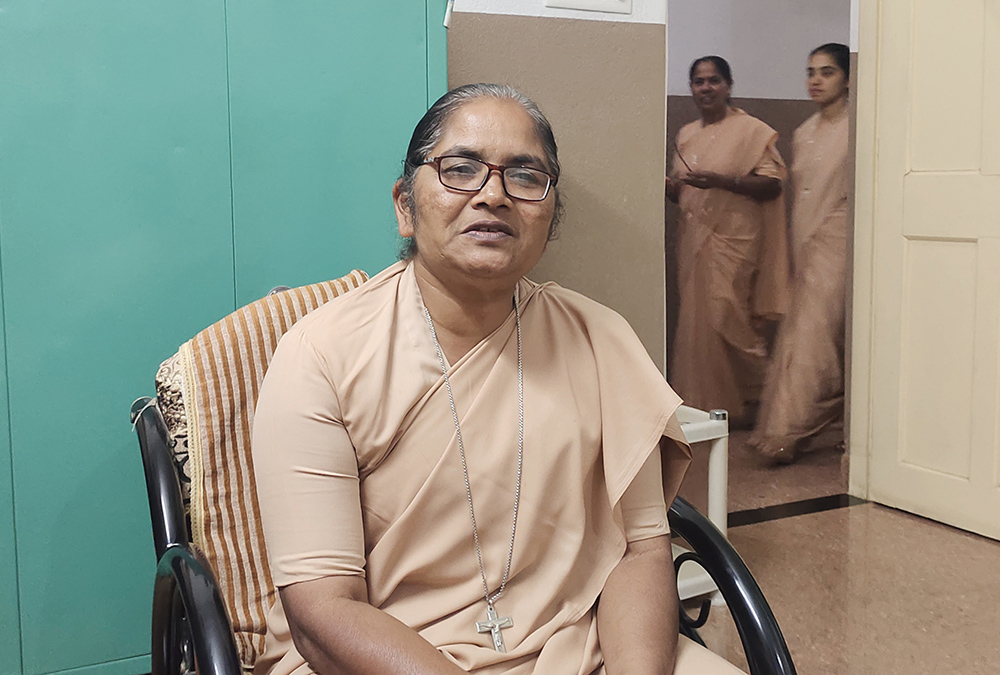
Sr. Beena Yallurkar, a member of the Sisters of Charity of Sts. Bartolomea Capitaneo and Vincenza Gerosa, who has worked with devadasis for 18 years, is pictured at her convent in Talikoti town, in the southwestern Indian state of Karnataka. (Thomas Scaria)
She has noted gradual changes in people's attitudes after the nuns formed self-help groups that encourage devadasis to send their children to schools.
But it has come with a price.
Yallurkar said she had to face several threats from village heads for working among the devadasis, as they didn't want her to lure away their source of enjoyment. Still, she could withstand their opposition because the law was on her side.
"We were literally chased out from our earlier convent as people resisted our visits to devadasis," she recalled.
Jesuit mission superior Fr. Francis Menezes agreed, saying their work among the devadasis faces a strong resistance from the community. "They watch our programs with suspicion, and misleading propaganda on conversion is always there," he told GSR, referring to pro-Hindu groups that accuse Christian missionaries in India of using social work as a means for religious conversion.
He said their only mission is to empower the Dalits, devadasis and the poor through education — not religious conversion.
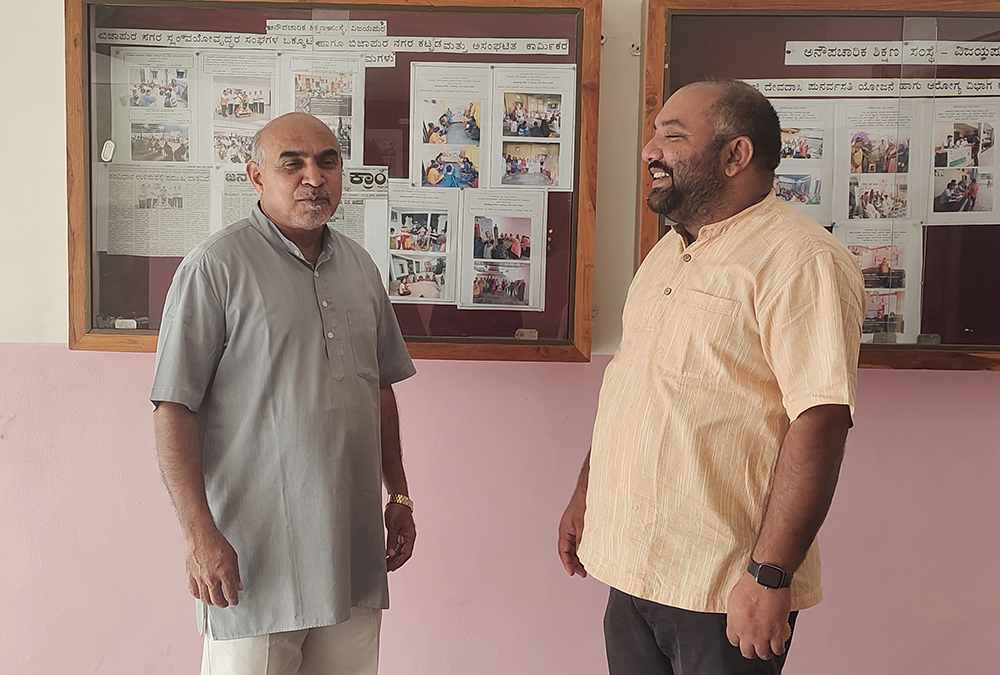
Jesuit mission superior Fr. Francis Menezes is pictured with Fr. Teyol Machado, director of Navachethana Centre for Non-Formal Education in Bijapur. (Thomas Scaria)
They are only able to continue the work, he said, because some politicians and officers admire the mission.
Maids of the Poor Sr. Juliet Menezes, who manages the hostel attached to Navachethana, said the Jesuit mission has created Christu bhaktas ("devotees of Christ") but not baptized Christians.
The government gives 500,000 rupees ($6,100) as an incentive for the marriage of a devadasi's daughter and 300,000 rupees for their sons. It also provides 300,000 rupees for devadasis to build their houses and a monthly pension of 2,000 rupees.
Yallurkar said these benefits are given to discourage dedicating young girls to the devadasi system, and "it is working."
Sunitha More, a social worker at Navachethana, said most devadsasi children do not have their fathers' names in their official records. This prevents them from qualifying for government benefits, such as scholarships.
One of them is Dadyamma, whose application for an education loan from the government could not be processed because her father's name is missing from the form.
"Neither me, nor my mother knows who my father is, but I know the fathers and sisters in the church can help me with my education and restore my dignity," she said.
Her mother, who supports her daughter's education by rag picking, said she had no opportunity to study, "but we do not want our children to have the same fate."






